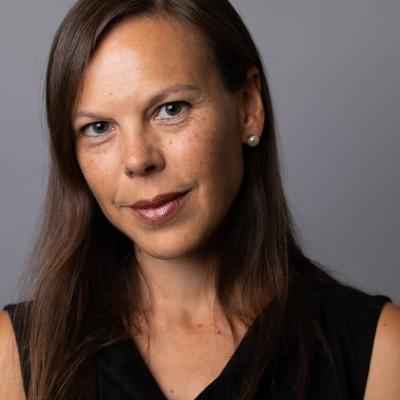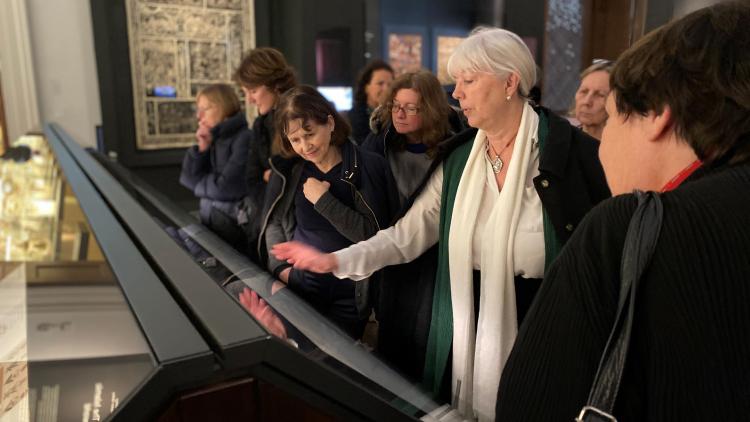MPhil/PhD in Creative Arts and Cultural Industries


Key information
- Duration
- 3 years full-time
- Attendance mode
- Full-time or part-time
- Location
- On campus
- Fees
-
Home (full-time): £5,055 per year
International (full-time): £23,390 per year - Entry requirements
-
We normally require a 2.1 bachelor's degree (or its equivalent) plus a Masters degree in appropriate subject area plus one reference. In exceptional cases we may accept applicants who do not meet these criteria if they show evidence of a strong Masters degree and/or appropriate level of relevant work experience. International applicants should also see Doctoral School English language requirements
Course overview
This MPhil/PhD in Creative Arts and Cultural Industries research degree provides advanced training and research experience at a doctoral level in the broad areas at the intersection of the Arts and cultural production and the cultural economy.
It will be particularly focused on the area of Cultural and Creative Industries practice and policy, work and social justice in the cultural industries, including issues such as curation, the politics of cultural production, independent cultural economies and moral economies.
This programme will allow students to draw on the wide expertise in the School of Arts in music, arts and film production, from the perspective of debates around the creative economy. It provides a core of training in research methods combined with a clear structure of progression thereafter.
Most SOAS research students spend some time doing fieldwork in the regions of their research. Through SOAS’ various connections with individuals and institutions in the universities and governments of Asia and Africa, students may be able to benefit from personal contacts and introductions.
Why study Creative Arts and Cultural Industries at SOAS
- SOAS is ranked 13th in the UK in the 2022 QS World University Rankings for Arts and Humanities
- students gain access to world-leading experts on the music, culture and traditions of Africa, the Middle East and Asia
- the unique regional focus available at SOAS mean that our students are supported in the study particular regions, art forms or themes
Structure
In year one students are required to follow a course of research training shared across the School of Arts, with dedicated breakout sessions appropriate to the pathway. In addition, students may be required to take one or more postgraduate courses (eg, Theory and Method in Ethnomusicology or Theory and Method in Art History), depending on their prior qualifications and the requirements of their research project.
Students are also expected to attend departmental research seminars.
An annual training plan is to be agreed with the lead supervisor to help ensure students have the requisite skills to undertake their planned research and produce a thesis of the required academic standard.
Research proposal/upgrade paper
In term 3 of Year 1 (full-time) or term 3 of Year 2 (part-time), students submit a Research Proposal/Upgrade Paper of about 12,000 words, typically including the following elements:
- Research rationale and context of proposed research
- Main research questions
- Literature review
- Theoretical and methodological framework & considerations
- Proposed research methods
- Ethical issues (where applicable)
- Work Plan and Budget
- Bibliography
Adjustments to one or more of these sections, including additions or deletions where appropriate, are possible by prior arrangement between the student and supervisory committee.
This research proposal/upgrade paper is assessed by the student’s supervisory committee in an oral exam (viva voce), lasting up to one hour. Prior to the viva voce, the student will have presented an earlier version of the research proposal/upgrade paper in a departmental research seminar, involving a 20 minute oral presentation, followed by a discussion, also open to other staff and students.
Year 2, 3 and 4
On successful completion of the viva voce, students are formally upgraded to PhD and proceed to the second year (full-time) or third year (part-time).
If the assessors consider there to be shortcomings in the research proposal/upgrade paper, a student will be asked to revise it to their satisfaction before the upgrade to PhD status can be confirmed. Students are not permitted to proceed to the next year or to fieldwork until the upgrade process has been completed.
Thesis
The thesis must be in English, not be more than 100,000 words, excluding bibliography and appendix, be reflective of the investigation carried out whilst a postgraduate research student and form a distinct contribution to the knowledge of the subject as set out in SOAS Postgraduate Research Degree Regulations.
Submission of the thesis is normally expected by the end of the third year, but when justified up to an additional three terms of enrolment may be agreed to enable the completion of writing-up of the thesis.
Students may not submit their thesis after four years of full-time registration (seven years for part-time) have elapsed.
Examination is by a minimum of two independent examiners at least one of whom is external to SOAS. Examination consists of an assessment of the thesis and a viva voce covering the thesis and the research upon which it is based.
Students successfully completing the programme are awarded a PhD in Creative Arts and Cultural Industries.
Students who do not meet the requisite standard to achieve a PhD may, if they meet the requirements set out in SOAS Postgraduate Research Degree Regulations, be awarded an MPhil in Creative Arts and Cultural Industries.
Important notice
The information on the website reflects the intended programme structure against the given academic session. The modules are indicative options of the content students can expect and are/have been previously taught as part of these programmes.
However, this information is published a long time in advance of enrolment and module content and availability is subject to change.
Teaching and learning
New students will be supervised by a panel of two academics consisting of a lead supervisor and a second supervisor. Occasionally a third supervisor may be appointed. Lead supervisors will usually be located in the School of Arts while second and third supervisors can be located in any of the SOAS Departments or Centres. Beyond this, the department research tutor has overall responsibility for SOAS research students, being available to discuss general problems.
The first, second and (if relevant) third supervisors form the students supervisory committee.
Current SOAS PhD students wishing to transfer to the PhD Creative Arts and Cultural Industries who enrolled before 2018-19 and have a supervisory committee of 3 members will retain a 3 person supervisory committee after the transfer.
SOAS PhD students who enrolled before 2018/19 and have a supervisory committee of three members, and who wish to transfer to the PhD in Creative Arts and Creative Arts will retain a three person supervisory committee after the transfer.
MPhil upgrades
As previously advised in Doctoral School circulars, due to the current health crisis we did not hold a School of Arts Upgrade symposium in 2020. MPhil students had to submit the Upgrade portfolio on PhD Manager by May 15 to ensure timely reporting on the outcome to the Doctoral School by June 15.
Extensions to this date could be considered in consultation with supervisors and the School of Arts Director of Doctoral Studies, Ashley Thompson, keeping in mind that we seek to keep students on track for progression mid-September whenever possible. Students should inform the Doctoral School of any extensions organised in this way by sending an email to: doctoralschool@soas.ac.uk
SOAS Library
SOAS Library is one of the world's most important academic libraries for the study of Africa, Asia and the Middle East, attracting scholars from all over the world. The Library houses over 1.2 million volumes, together with significant archival holdings, special collections and a growing network of electronic resources.
Scholarships
| Title | Deadline date |
|---|---|
| Meiji Jingu Japanese Studies Research Scholarships |
Employment
Students in the School of Arts develop a critical and theoretically informed approach to global arts and culture. In addition to an intercultural awareness and practical expertise, graduates gain a wide portfolio of transferable skills which are especially sought after in the creative and cultural industries.
Recent School of Arts graduates have been hired by:
- Christie’s
- Christine Park Gallery
- Crisis
- Design Museum
- Hong Kong Museum Of Art
- India Foundation For The Arts
- Japanese Gallery
- Museum of East Asian Art
- Music in Detention
- National Gallery
- Pan Arts
- People Projects Culture & Change
- Roundhouse Trust
- Somerset House Trust
- Songlines Magazine
- Sotheby's
- South Asian Art UK
- Stratford Circus Arts Centre
- Taiwan Embassy
- The Alliance for Global Education
- The British Embassy
- The National Museum Of Korea
- The Royal Collection
- Victoria and Albert Museum
Find out about our Careers Service.











